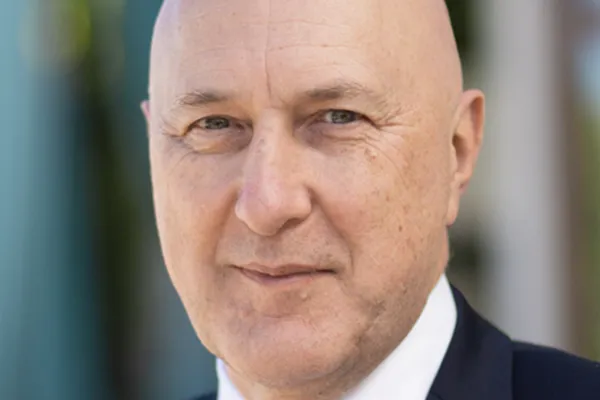In the hotly competitive and frequently backbiting world of academia, Ben Bernanke stood out from the crowd in that he enjoyed almost universal admiration from colleagues, both for his intellectual prowess and for his personable manner. So when President George W. Bush late last month appointed the former Princeton economist to succeed Alan Greenspan as chairman of the Federal Reserve Board, the accolades flew thick and fast.
"It's a responsible policymaker's dream come true," says Stephen Cecchetti, an economics professor at Brandeis University. "It's great to have someone who is this competent."
"If you drew up an ideal central banker, you couldn't come any closer" than Bernanke, says Edward Gramlich, a professor of economics and public policy at the University of Michigan who served with Bernanke on the Fed's board of governors. "He's smart; he has studied the issues for a long time. He's very nonpolitical."
The 51-year-old economist has been making waves in academia since 1983, when he published a seminal paper showing how the Fed's failure to stem a banking crisis after the 1929 stock market crash contributed to the Great Depression. Bernanke gained attention in central banking circles in 1999 at the Kansas City Fed's annual conference in Jackson Hole, Wyoming, when he presented a paper arguing that central banks should never try to prick an asset bubble but must act quickly to stimulate the economy -- and avert the threat of deflation -- if a bubble bursts.
Bernanke gained practical experience as a central banker when Bush appointed him to the Fed's board of governors in 2002. In June he went over to the White House as chairman of the Council of Economic Advisers.
Although Bernanke promoted the administration's economic policies at the CEA, friends and colleagues say he is no ideologue. Robert Frank, a Cornell economist who co-authored an economics textbook with Bernanke in the late '90s, says he didn't know what his partner's political leanings were during their collaboration. "I didn't know he was a Republican until he got appointed to the Fed," Frank says.
When he takes over from Greenspan in February, Bernanke will have big shoes to fill. Often called the second-most-powerful person in the U.S., the current Fed chairman burnished his reputation with his deft handling of crises like the 1987 stock market crash and with his early perception of the U.S. economy's productivity gains in the '90s. Bernanke will want to lock in the legacy of credibility that Greenspan leaves the Fed without necessarily emulating the maestro's methods.
Both in academia and at the Fed, Bernanke has argued for greater transparency and the adoption of a clear inflation target to guide policymaking rather than a reliance upon instinct, which Greenspan often seems to employ. Bernanke's arguments have had a big impact: The Fed, which didn't even announce interest rate changes a decade ago, today releases a statement after every meeting of its policymaking Federal Open Market Committee and publishes detailed minutes of those meetings before the next gathering. And although the Fed's dual mandate to foster low inflation and high employment makes it politically difficult to switch to the type of formal inflation-targeting regime practiced in Britain and other countries, most economists believe the Fed already has an implicit target of 1 to 2 percent, as measured by the personal consumption expenditures deflator.
Bernanke is likely to want to increase the transparency and predictability of Fed policymaking -- perhaps by releasing the economic forecasts of individual FOMC members -- to help financial markets transmit Fed intentions to the real economy more effectively.
Says Brandeis's Cecchetti, "Having a framework that's not as reliant on an individual is important, and I think Ben agrees with that."





